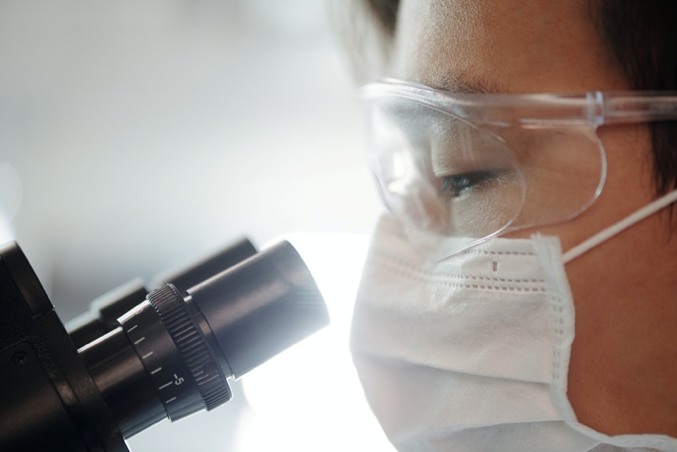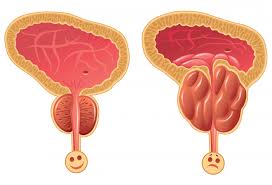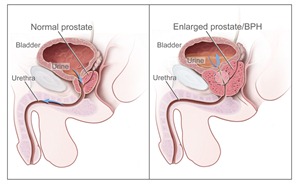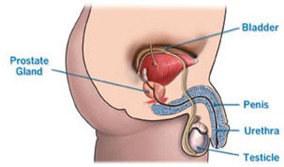The prostate is a small gland of the male reproductive system. It’s around the urethra, which is the passageway for the flow of urine. It is responsible for much of the fluid in the semen. Moreover, the function of the prostate is to expel the fluid through the penis. It uses muscular force to create this propelling action inside the penis.
Many men face the troubles of an enlarged prostate. This complication is usually a result of the aging process. A highly troublesome condition leads to many symptoms and difficulties. Fortunately enough, there are treatments for this occurrence.
Benign Prostatic Hyperplasia (BPH)
Benign prostatic hyperplasia is the enlargement of the prostate. A complication occurs due to the excessive prostate gland cells. When the cells of the prostrate start multiplying, it causes the gland to grow abnormally and press upon the urethra. This squeeze on the urethra starts to obstruct the flow of the urine. Therefore, a person with BPH faces plenty of urinary problems.

(source)
People tend to confuse this condition with prostate cancer. However, it is completely different. This condition does not correlate to cancer; neither does it increase your risks of cancer. However, it can still cause disturbing symptoms. These symptoms can drastically affect your quality of life. It is most common amongst men of age fifty and older.
BPH Symptoms
The symptoms of Benign Prostatic Hyperplasia start as mild and then go on to become very serious depending on how fast someone gets treatment. Prolonging this condition will lead to more concerning symptoms. The most common symptoms include:
- Incomplete emptying of the bladder
- Blood in the urine
- (refers to symptoms that cause you to urinate more than two times every night)
- Pain while urinating
- Excessive drops after long urine stream
- Delayed stream of urine
- Unexpected leaking of urine
- Sudden urination urges
- A weak stream of urine (not enough urine pressure, due to the bad functions of the bladder)
- Trouble urinating without applying strain
BPH Causes
The exact cause of this condition is unknown. However, the most common cause is the aging process. When a person starts to age, the body starts to undergo certain hormonal changes. Furthermore, certain cells start to deteriorate, and abnormalities start to show. Thus, male sex hormone changes may be a cause of BPH.
Another probable cause could be the inheritance of a defective gene. If this condition commonly runs in your family, then you are also at risk of BPH. This does not apply to BPH alone; it can also include any medical abnormalities of the prostate or urinary tract. Lastly, this condition is also rare amongst men that undergo testicle removal at a young age.
BPH Treatment
People that suffer from BPH usually have to resort to self-care solutions initially. In some cases, self-care measures work tremendously. Nevertheless, the doctor is likely to treat the patients with medications, or in extreme cases, surgery. The treatment may also depend on the age of the patient and whether they are in the condition to undergo extensive surgery.
Apart from medication, a patient can seek comfort in these steps by taking a few measures. These include timely urination at the exact moment of the urge. Furthermore, a patient should be consistent in going to the bathroom to ensure that their bladder remains empty. This is important because having a half-empty bladder for a patient with BPH can lead to unwanted leakages.

(source)
Moreover, avoiding substances that put stress on your bladder is another way to subdue the lasting symptoms of BPH. Thus, patients should stay away from substances such as alcohol, caffeine, and certain medications. Other times, doctors advise patients to stay away from stressful situations. If you suffer from mild level BPH, you must keep your mental health in check. Being under the burden of stress can have negative impacts on your bladder and urine frequency.
Another beneficial habit for BPH patients is exercise. Lack of exercise will only lead to the worsening of your condition. Some people advise Kegel exercise for patients. This exercise involves certain movements that strengthen your pelvic muscles.
Benign Prostatic Hyperplasia Urologists: Conclusion
If you or anyone you know suffer from prostate or bladder issues, such as Benign Prostatic Hyperplasia, visit Fifth Avenue Urology, a medical practice in New York City whose renowned doctors offer you the experience and expertise to best treat BPH and related issues.
FIFTH AVENUE UROLOGY
5 East 83rd Street
New York, NY 10028
212-675-3186
Visit our website for more information.
 Dr. Larish is a urologist and surgeon treating women and men with a variety of urological conditions. His expertise is in treating complex kidney stones, enlarged prostates (BPH), incontinence, erectile dysfunction, infertility, and urological oncology (prostate, bladder, kidney, and adrenal cancers). He is an expert in general urology and is often consulted for second opinions.
Dr. Larish is a urologist and surgeon treating women and men with a variety of urological conditions. His expertise is in treating complex kidney stones, enlarged prostates (BPH), incontinence, erectile dysfunction, infertility, and urological oncology (prostate, bladder, kidney, and adrenal cancers). He is an expert in general urology and is often consulted for second opinions.









